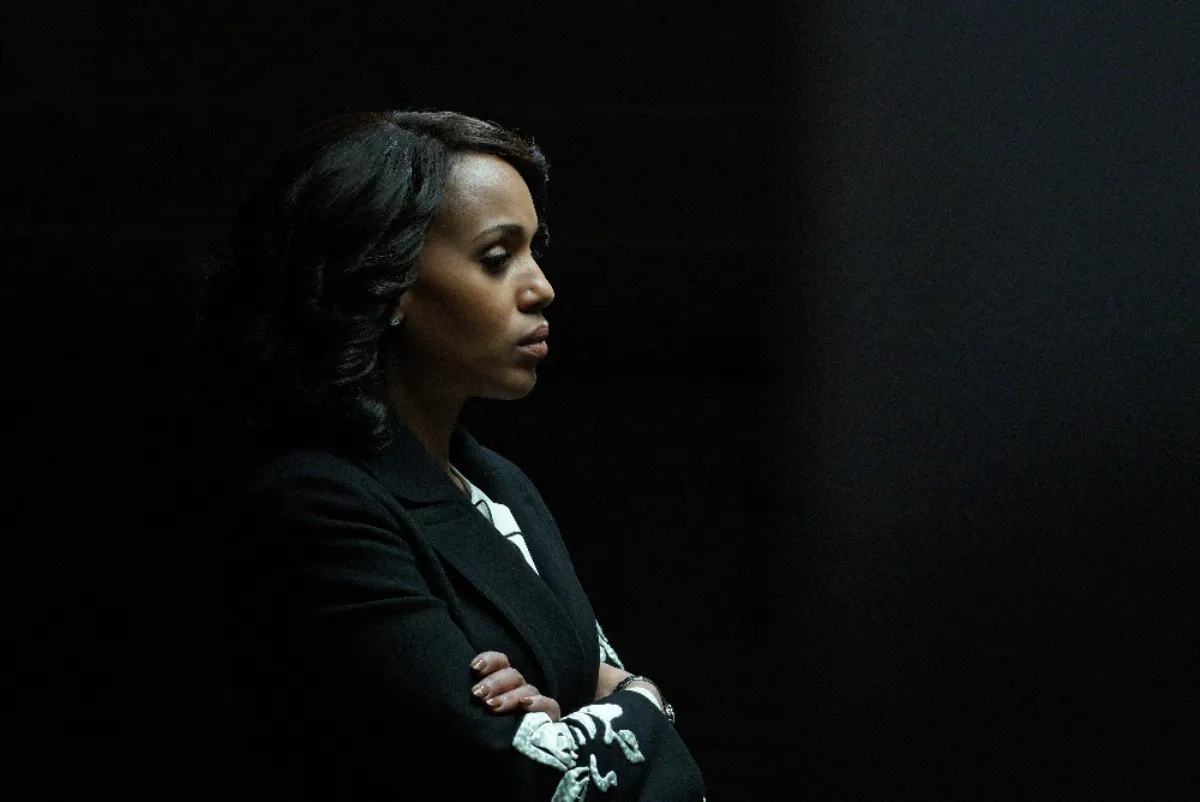I can’t remember the exact moment I stopped watching Scandal for real. It probably had something to do with Fitz being terrible to Mellie and Olivia still pining for him in some way that made me gag. But I stopped watching because, in my brain, there was this thing I wanted—needed–Olivia Pope to be and every time she wasn’t, I was frustrated. That was my mistake.
That was a couple of years ago and now that I have grown and witnessed so many amazing women of color enter television being their realist, rawest and un-respectable selves, I recognize the catalyst of that character begins with Olivia Pope.
Looking back on Scandal, the thing that I feel will be impactful for me when I rewatch it, is how much Olivia Pope was painfully and fully her own person. That type of raw, flawed, but beautiful persona is not one often given to a black woman and so when I came face-to-face with it, I often found myself not knowing how to react. Especially because she was the hero. We are so used to having men who make mistakes and still root for them, but at times we turn on women for being as equally flawed and clever enough to get away with it. Even those of us who are aware that double standard can still fall into those traps.
It was easy for me to relate to and care for Mellie Grant, the antagonistically fabulous put-upon wife of Fitz, whose storylines always made me want to give her a hug and find her a quality vibrator to replace all the foul-ass-dicks that surrounded her life.
But why was I so hard on Olivia? Why did I hate how much she loved Fitz so much even though to me he was so mediocre as a man, father, husband, and president? Because there was truth in it.
It is uncomfortable to see a black woman weak on television. Weak over a white man who she is having an affair with is a doubly problematic issue. Nevermind all the other Scandal related reasons that make Olitz one of the most…infuriating couples ever. But Olivia loved him. She loved him for his faults, she loved him for the good she saw in him and she loved him in spite of the ways it compromised her own better judgment.
That’s the thing about being in love. It makes you dumb and just like Molly on Insecure, you can be strong and capable in almost every aspect of your life, but then also be a fool in love. How can I profess to love Sex and the City’s Charlotte York for her ability to love in spite of the all the reasons the world tell us not to, but hate Olivia for doing the same?
Yes, I hated seeing Olivia rummage through garbage to get her Fitz burner phone but is that any worse than when you look through an ex’s page on Instagram even though you don’t follow? Then sending a casual “hey” text and then hoping, praying that maybe they will say hey back? It is a moment of such pure vulnerability that you can resent having to watch it.
Just like with my girl Sansa, sometimes the hardest thing is watching a character who makes the same mistakes you do. Who shatters the illusion of their own perfection in a way that is so reflective of your own flaws it is hard to enjoy watching them. That is how it was for me watching Olivia Pope, I was frustrated at how she could allow herself to be made a fool by some white guy with no eyebrows, but how many times have any of us loved someone who hurt us, but we still cared deeply about them? Who made us doubt our own strength?
In denying both men and women the ability to sometimes be fragile, we deny ourselves the freedom to make mistakes, grow from them and become better. Plus, at the end of the day, Olivia Pope was being the best kind of character to watch on television: a flawed human being.
Olivia Pope is a triumph, she was the first black female anti-heroine to grace television and be the undisputed star. She made it possible to have Mary Jane Paul, Cookie Lyon, Nola Darling 2.0, Issa, Molly and all of the fantastic black women in television we see now being a mess in life and in love, but still being people and characters we want to revisit time and time again.
Now when I think of myself as a writer and how I want to write women, I know that I want to write women as moral complex and interesting as Shonda Rhimes. She raised the banner and I, along with many other female writers, are going to keep answering the call.
In that way, we are all gladiators.
(image: ABC)
Want more stories like this? Become a subscriber and support the site!
—The Mary Sue has a strict comment policy that forbids, but is not limited to, personal insults toward anyone, hate speech, and trolling.—










Published: Apr 19, 2018 04:56 pm